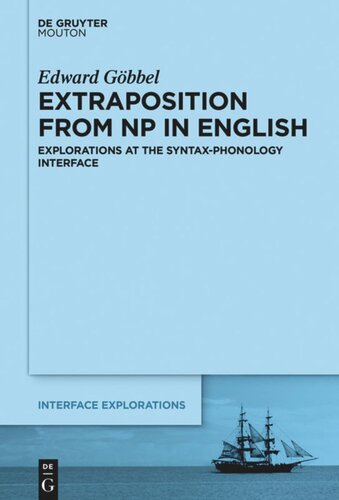

Most ebook files are in PDF format, so you can easily read them using various software such as Foxit Reader or directly on the Google Chrome browser.
Some ebook files are released by publishers in other formats such as .awz, .mobi, .epub, .fb2, etc. You may need to install specific software to read these formats on mobile/PC, such as Calibre.
Please read the tutorial at this link: https://ebookbell.com/faq
We offer FREE conversion to the popular formats you request; however, this may take some time. Therefore, right after payment, please email us, and we will try to provide the service as quickly as possible.
For some exceptional file formats or broken links (if any), please refrain from opening any disputes. Instead, email us first, and we will try to assist within a maximum of 6 hours.
EbookBell Team

4.4
82 reviewsThe impact of phonology on word order phenomena has become a central research agenda ever since the Minimalist Program emphasised the role of interface conditions on syntactic operations.
This book is a detailed study of extraposition from NP, which has traditionally been the domain of syntactic investigation and information-structural studies. After an examination of syntactic accounts of PP and relative clause extraposition, which are largely found inadequate, it explores the possibility of phonological solutions by comparing the prosodic structure of canonical and extraposed word orders. Particular attention is payed to the informational status of extraposed constituents and the focus structure of the sentence. The book shows that extraposition optimises the prosodic structure of sentences and in some cases their rhythmic structure, while focus structure only plays a role in extraposition of defocused constituents. The book further argues that extraposition occurs at PF, while certain binding-theoretical consequences of extraposition can be resolved by LF movement. With its focus on the interface between syntax and phonology, the book will appeal to researchers working on either domain.